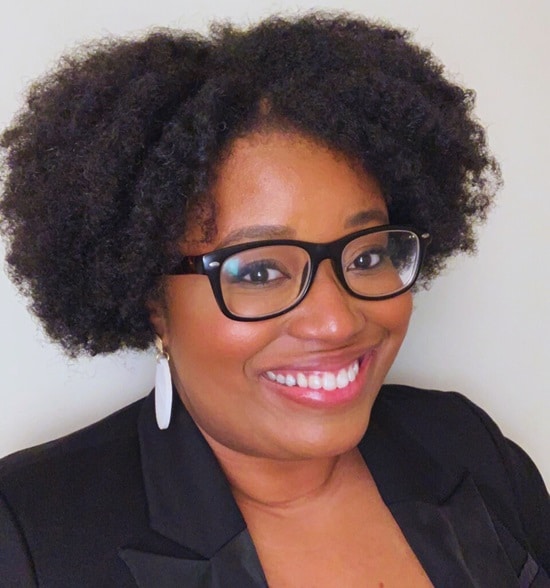My experiences understanding love as a young person of color are reflected in this quote from All About Love by bell hooks: “It is easier to articulate the pain of love’s absence than to describe its presence and meaning in our lives.” Her words and scholarship validate the moments of confusion I felt that made me ask, “What exactly is this thing we call love?”
Research on attachment theory shows that our upbringing shapes our relationship with love. For many people of color in the United States, and those who love them, adverse childhood experiences and ongoing sociocultural stressors can shape their relationships, and complicate how we understand and express love.
Seeking a new definition of love
How I understood love as a child is very different from the freeing definition of love I find in my life today. In my early 20s, I took a hard look at how other people defined love and saw it was not enough for me. The definitions I found seemed to lack what people actually need from relationships.
The more I explored, the more I came to believe that love is a verb. I learned that taking the time to build strong relationships actively supports my physical and mental health and well-being.
What does the research say?
Researchers have found that young people of color:
- Experience high levels of loneliness
- Invest in social causes even as they face complex forms of injustice
- Place a high value on authentic relationships
- Can improve their mental health if they focus on relationships that reinforce their worth and increase their sense of self-compassion
In surveys like this one from Tinder, young people aged 16–24 reveal a desire for love in its varied forms — with some important ingredients, including:
- Authenticity. They want a foundation of love built on honesty, emotional openness, and trust.
- Expansiveness. Relationships are defined by diversity and respect, reflecting the spectrum of sexual and gender identities of their age group.
- Self-care and responsibility. Along with attraction, young people prioritize likeability and shared interests, ensuring that love nurtures both individuals.
- Loyalty and open-mindedness. Motivating factors for sustaining relationships are valued more than superficial traits.
What can you take away from all this research? As you seek to support your mental health and build strong relationships, it may be useful to explore and practice love as a multidimensional force for healing, connection, and mutual support.
Six focus areas to support mental health and emotional well-being
Given the social realities you face, you may find it useful to identify focus areas to help ensure that your relationships support you in healthy, empowering, and affirming ways. Let’s look at six elements as outlined by researchers, young people, and scholars — and how you can put each element into action.
- Love as Care: Seek relationships that are intentional and nurturing for you and others.
- Love as Affection: Seek relationships that emphasize warmth and tenderness to create spaces for emotional safety.
- Love as Responsibility: Seek relationships prioritizing accountability for your own and others’ well-being and actions.
- Love as Respect: Seek relationships where autonomy and dignity are central to their foundation.
- Love as Commitment: Seek relationships that focus on mutual investment and shared growth.
- Love as Trust: Seek relationships infused with honesty and vulnerability.
The Takeaway
Love, in all its forms — romantic, familial, platonic, self-focused, and social — has the power to heal, empower, and connect. As you navigate your life in today’s complex world, embracing love as care, affection, responsibility, respect, commitment, and trust can provide a strong foundation for relationships that are healthy, affirming, and sustaining. Grounding your connections in these principles can nurture your own well-being and help you create spaces where love is lived and celebrated in the relationships you cherish and the communities you build.
References
- hooks, b. (2001). All about love: new visions. First Perennial edition. New York, Harper Perennial.
- Levine, A., & Heller, R. (2010, July 11). “Get attached.” Scientific American. https://www.scientificamerican.com/article/get-attached/
- Weir, K. (2023, June). The science of friendship. Monitor on Psychology. https://www.apa.org/monitor/2023/06/cover-story-science-friendship
- Public Religion Research Institute. (2023, October 17). Generation Z’s views on generational change and the challenges and opportunities ahead: A political and cultural glimpse into America’s future. https://www.prri.org/research/generation-zs-views-on-generational-change-and-the-challenges-and-opportunities-ahead-a-political-and-cultural-glimpse-into-americas-future/
- Spector, N. (2022, January 4). Are Gen Z more pragmatic about love and sex? BBC Worklife. https://www.bbc.com/worklife/article/20220104-are-gen-z-more-pragmatic-about-love-and-sex
- Raque-Bogdan, T. L., Ericson, S. K., Jackson, J., Martin, H. M., & Bryan, N. A. (2011). Attachment and mental health: The mediating role of self-compassion. Journal of Counseling Psychology, 58(1), 56–63. https://self-compassion.org/wp-content/uploads/2014/10/Raque-Bogdan-JCP-article.pdf
- Feeld. (2023, October 3). Feeld partners with Kinsey Institute fellow Dr. Justin Lehmiller: Gen Z state of dating & relationships. https://feeld.co/press/feeld-partners-with-kinsey-institute-fellow-dr-justin-lehmiller-gen-z-state-of-dating-relationships
- Tinder. (2023). Future of dating report 2023. https://filecache.mediaroom.com/mr5mr_tinder/179342/Copy_of_FOD_Report_2023_FINAL.pdf

